"She Could Shake the Universe"
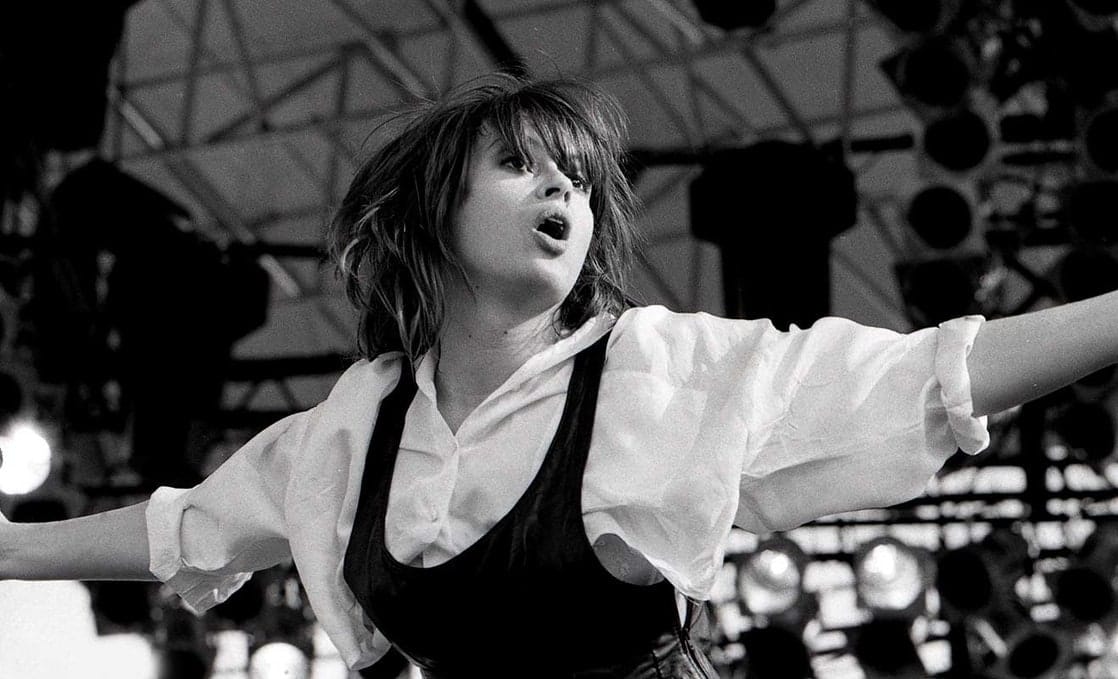
What you may be thinking, esteemed readers, could be that a video of Tina Turner onstage in an arena doing “River Deep Mountain High” would go nicely with the above headline. And few would disagree. But that five-word tribute came from a presumed Aussie punter in the Comments section under the striking YouTube video of Christina Amphlett, of the Divinyls, performing the band’s Oz hit, “Boys in Town”. (Yes, attention will also be paid soon enough below to the band’s one major American hit, “I Touch Myself”.) In reply to his comment, a fellow punter chimed in: “Absolute force--scary in a way.” Have a look:
It’s all there—the fierce stance with the neon mic stand held at port arms, the glaring eyes the spotlight just detects, (years later she’d admit, “I sorta thought the audience was my enemy”), the grown-up-all-wrong schoolgirl get-up of white blouse, suspenders, and a short plaid skirt giving way to ripped fishnet. Early on, she had a trick where she’d grab a purse sitting in reach from stage front, chuck out the tampons, then steal the lipstick to smear on her face and limbs during the song “Elsie”:
Smells of bugs and fornication
And a bottle of cheap scent
Should she stick around
Is this all life meant?
“Elsie”:
Coached or perhaps baited by her manager, she quickly went from what they called The Schoolgirl to what they dubbed The Monster, upgrading from skulking by the drumkit to acrobatic prancing, hopping, and a kind of simian squatting posture that created rumors she’d been urinating onstage.
“Boys” was side one, track one if the band’s debut “Desperate” album. When she came to New York City ‘s Ritz in 1985, based on their first songs and the attention that came with the soundtrack for the risqué’ Australian film “Monkey Grip," she commanded the room from the club’s elevated stage as the wood floor, stuffed with curious press and scenesters, thudded with dancing fans.
Her label Chrysalis had signed the band despite Amphlett’s refusing their offer to improve her irregular dentition. She was in many ways quite unlike early inspiration and labelmate Debbie Harry of Blondie. (That group had their own lust-stoked hit with “One Way of Another".) As an early Blondie adherent, having done their first Rolling Stone feature and even a quickie paperback with some cooperation, I was attentive, but Amphlett and company were different. Where Debbie Harry had served up seduction with a certain distance, Amphlett’s sex-positivity was rougher: “Take it—if you can--or leave it."
The song opens like an action movie, guitars and rhythm pummeling like a big rig chasing a truck that’s chasing a motorcycle, but proceeds with a certain swing as if the rampage is speeding through a winding valley:
I don’t want to hang around
All the boys in town
Now I want a man around
Get me out of here
As in, don’t be fooled by the schoolgirl look—after all:
I am just a red brassiere
To all the boys in town…
And then the line that gave the album its title:
I must have been desperate
I must have been pretty low…
Which admission, in concert, generally moved Amphlett to strum her own lips, a kind of motorboating raspberry. After your first listen you knew to wait for her banshee wail that tapered off in a near-despairing, long-tailed moan. Meanwhile the band, notably her boyfriend and guitarist and co-author of the song Mark McIntee, set up up baleful chorus that droningly repeated “Too much/too young”– which, however autobiographical to Amphlett’s incipient alcoholism, had the ominous ring of a Fifties public-service short .
Live at the Ritz, December 1985:
Their sound was punkish at points, anything but old school. “We didn’t like vibarato,” said Amphlett of the tastes in rock that enabled a the duo's productive writing run, “And we didn’t like solos... we believed in each other.”
She had begun her career nude in an adventurous theatrical onstage porn satire --her word for the enterprise was “sleazy”, though she stood onstage confidently in her curvy all-together, tossing out a ver , very blue song.
A noted Aussie photographer said of watching her on a rock stage, “She was unbelievably wild and unpredictable. I often had fears for my safety, her safety, the audience’s safety.” At a certain stage the main rock mag in Australia would send only whatever reporter was in the doghouse to interview her. “I was feral,” she said unblinkingly many years later on the top Oz chat show “Enough Rope”.
Much more commercially notable than their banger, admittedly, was “I Touch Myself” as written by hit-writing team (Madonna’s “Papa Don’t Preach”) of Billy Steinberg and Tom Kelly:
It was released in November 1990 as the lead single from the band's self-titled fourth album, reaching No. 1 in Australia and No. 4 on the US Billboard Hot 100. In 2023, Billboard magazine ranked it among the "500 Best Pop Songs of All Time."
Her 2005 autobiography “Pleasure and Pain,” detailed the self-destructive careening but also end of the boozing that had wrecked her health and put her a million Oz dollars in debt. The transformative blowup came on a Christmas day in 1996 when her family grappled with her during a violent binge, including a fracas with her mom, dad and sis (sitting on her midsection) that left her dad bitten by the time a doctor shot her up with a calming injection.
Amphlett would have little time to enjoy her hard-earned sobriety, but kept her hand in showbiz somewhat. The new man in her life, Charley Drayton, had been drumming in the band when their career closed down in 1996, and he became her rock. And although she’d be stricken with breast cancer—with her treatment undercut by an onset of multiple sclerosis—the couple found a kind of peace and domesticity in a new life in Manhattan.
A career highlight came unexpectedly in 1997 when a national touring company cast her as Judy Garland in the Peter Allen-centric musical “Boy from Oz”, bringing good reviews. Her career would taper down as her health declined, though she had a quiet spate of fond acceptance in Australia in speaking about her recovery.
The formerly near-transgresive "I Touch Myself," which Rolling Stone called one of the "most shamelessly sticky-fingered single entendres in the annals of human depravity” has settled into a kind of mainstream iconic stature. Recently it was featured in one of Robert Fripp’s well-loved series of semi-pro home videos featuring his wife (performing the song on an exercise bike):
On “Enough Rope” in 2006, Amphlett the former bane of journos and threat to audience safety was a revelation: poised, chatty, inspirationally sober for a decade, and witty, having a few laughs with her mum and sister along. Her choice to end the program singing solo with an acoustic guitarist proved to be a good one. She promised to deliver a song with had a kind of “beauty…about a higher self and a lower self”, and delivered just that (at 34:20 below), offering a few subtle gestures but also a tenderness in the phrasing that did something Judy Garland might have done—she re-imagined the pop tune as fervent, touching autobiography:
Amphlett has said that the key to her sobriety was at last discovering her own “humility”. So perhaps she wouldn’t have put it the same way her rock Charley Drayton would in memorializing her: “She paved the way for strong, sexy, outspoken women.”
Not bad for someone who made a near-legendary positive of being “scary in a way”.

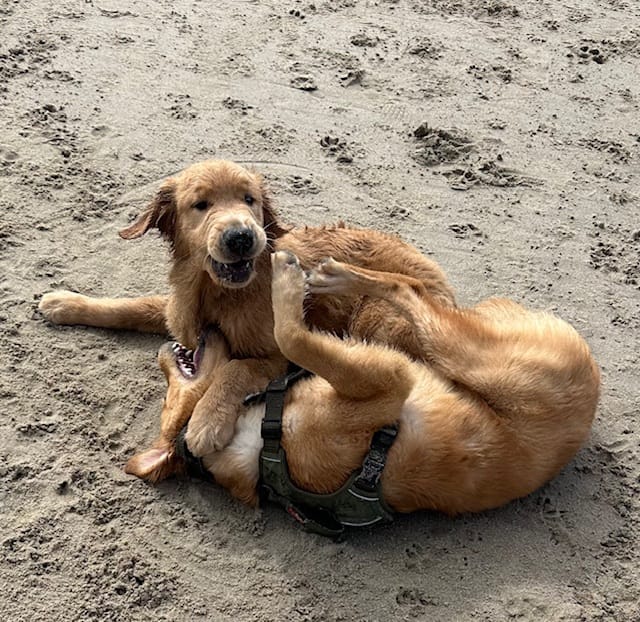
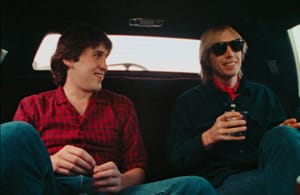
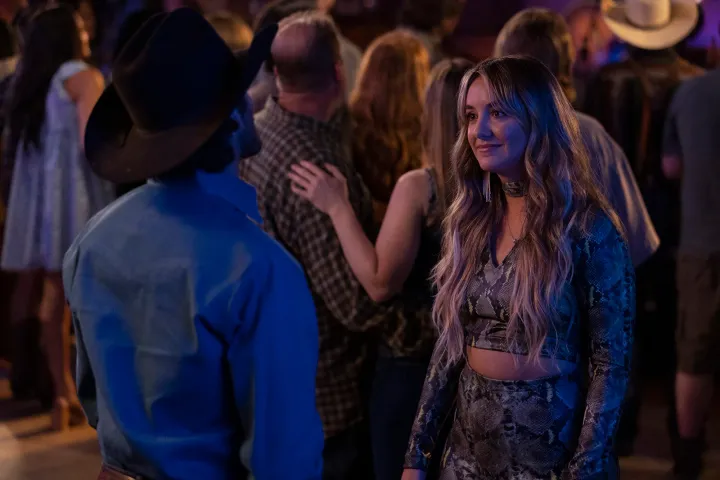
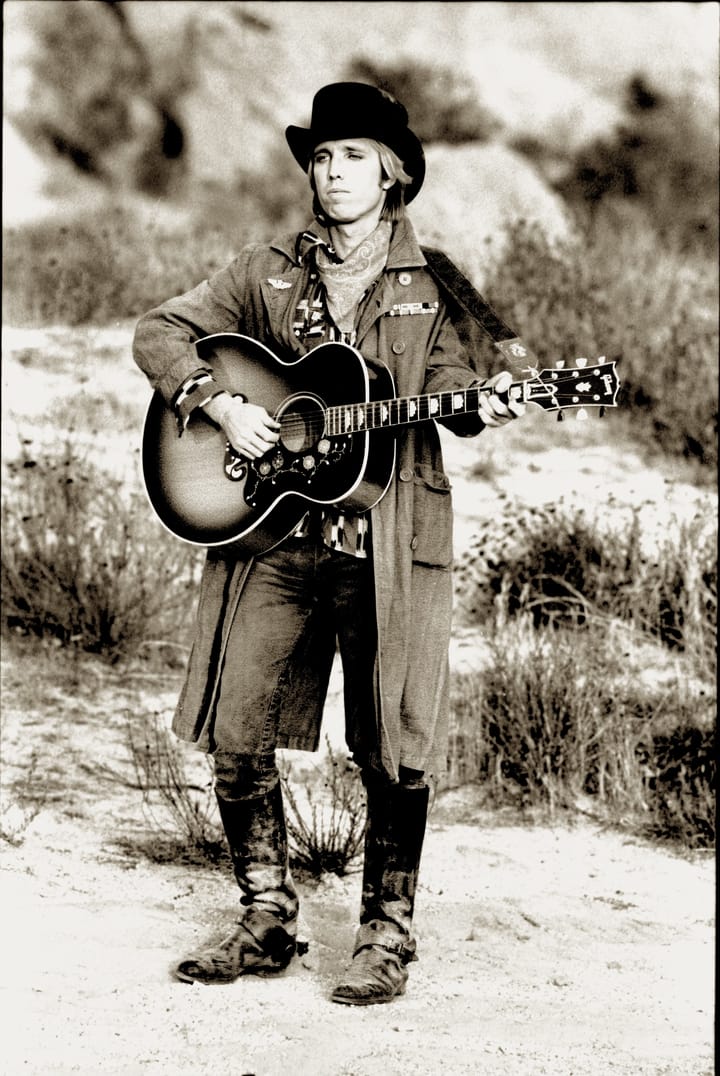
Comments ()